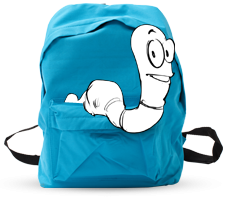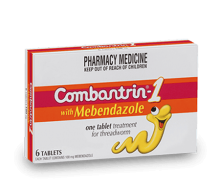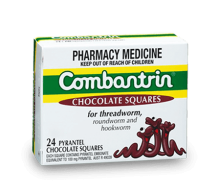Hailing from the roundworm family, strongyloides (full name 'Strongyloides stercoralis1') is a parasite which can cause strongyloidiasis in humans. Though they are rare in Australia or New Zealand, we understand the significance of being prepared for any eventuality as parents – which is why we've put together this simple fact sheet with the most important facts about strongyloides, the infections they cause, the symptoms they create, and how to get rid of them.
If, based on the information you find here, you think your child or a member of your family might have strongyloidiasis, contact a medical professional immediately.
A strongyloides overview
Strongyloides occur in tropical and temperate areas, but they're much more common in warm, wet regions.2
This type of worm is unique in that it can remain in the human body for decades, thanks to an 'auto-infection' cycle. The larvae can pierce the skin and make their way to the lungs and then the gut, where they eventually become adult worms– yuk! These then produce eggs that hatch and develop into the infective larvae. These larvae are then expelled from the body in faeces – but they can sometimes penetrate the skin around the anus and infect the body once more, continuing the cycle3.
Find out more about how to prevent reinfection of worms
How do I catch strongyloides?
Infection occurs when larvae on contaminated soil comes into contact with human skin, when it can penetrate the skin and enter the bloodstream4. These types of worms can't be caught through human-to-human contact, unlike threadworms, for example.
What are the symptoms of strongyloidiasis?
As with other worm infections, symptoms can go unnoticed for many months – but those who do develop symptoms of strongyloidiasis may experience heartburn, bloating, intermittent diarrhoea or constipation, a dry cough, a rash and some abdominal pain.
How can I prevent strongyloides infections?
It's important to stress that strongyloides infections are incredibly rare in Australia and New Zealand – exposure to these worms is fairly restricted to countries with high population density and poor sanitation facilities. Nevertheless, it's important to take the right precautions – if children are going to be playing outdoors, promote regular hand-washing and ensure they avoid contact with faecal matter at all times.
COMBANTRIN® is effective at treating threadworm, hookworm and roundworm infections.





